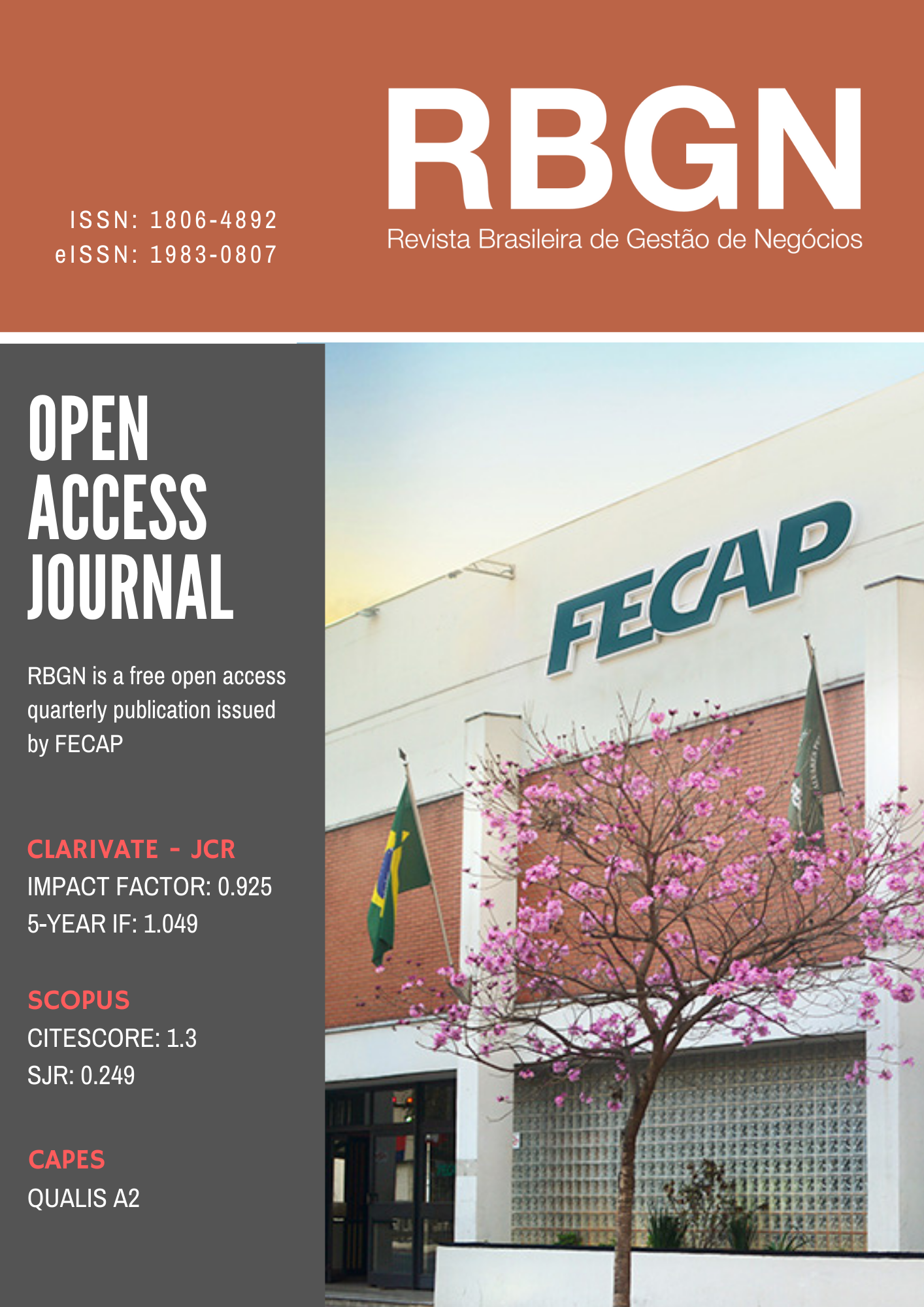Resumen
Purpose – This study analyzes self-perceptions of justice and burnout in job attitudes and behaviors (job satisfaction, affective organizational commitment, and turnover intentions).
Theoretical framework – The literature foresees that perceptions of injustice in the workplace may impact affective organizational commitment (Folger & Konovsky, 1989), job satisfaction (Folger & Konovsky, 1989; Cohen-Charash & Spector, 2001; Colquitt, Conlon, Wesson, Porter, & Ng, 2001), and turnover intentions (Flint, Haley, & McNally, 2013; Vaamonde, Omar, & Salessi, 2018), as well as causing frustration, chronic stress, and burnout (Maslach, 2007).
Design/methodology/approach – A quantitative survey was carried out of internal auditors of companies and a total of 124 valid questionnaires were obtained. The data were analyzed using structural equation modeling.
Findings – The results indicated direct relationships between distributive justice and behavioral variables. They also revealed mediation by burnout in the relationships between procedural justice and both job satisfaction and affective organizational commitment. They also show that auditors who perceive procedural injustice present turnover intentions when they are emotionally exhausted and in a state of depersonalization.
Research Practical & Social implications – This research shows how perceptions of organizational justice are capable of psychologically influencing individuals into displaying positive behaviors (greater job satisfaction and affective organizational commitment) or dysfunctional behaviors (turnover intentions).
Originality/value – The paper discusses attitudes of initiative and social interaction and passive attitudes arising from exhaustion and indifference to work, and how these can derive from judgments about resource allocation, decision-making processes, and interactions with supervisors.
Una vez aprobada la publicación del artículo, el/los autor/es cede/n los derechos de copyright a la Revista Brasileira de Gestão de Negócios – RBGN.
Es OBLIGATORIO que los autores envíen a la RBGN el formulario de Cesión de Derechos de Autor debidamente cumplimentado y firmado según el modelo: [Derechos de autor]
Las condiciones de la Cesión de Derechos de Autor indican que la Revista Brasileira de Gestão de Negócios – RBGN goza a título gratuito y en carácter definitivo de los derechos de autor patrimoniales de los artículos publicados por ella. A pesar de la Cesión de los Derechos de Autor, la RBGN faculta a los autores al uso de estos derechos sin restricciones.
Los autores se responsabilizan de los textos publicados en la RBGN.
La RBGN adopta el modelo de licencia CC-BY Creative Commons Attribution 4.0, permitiendo la redistribución y reutilización de los artículos garantizando que la autoría esté debidamente acreditada.


